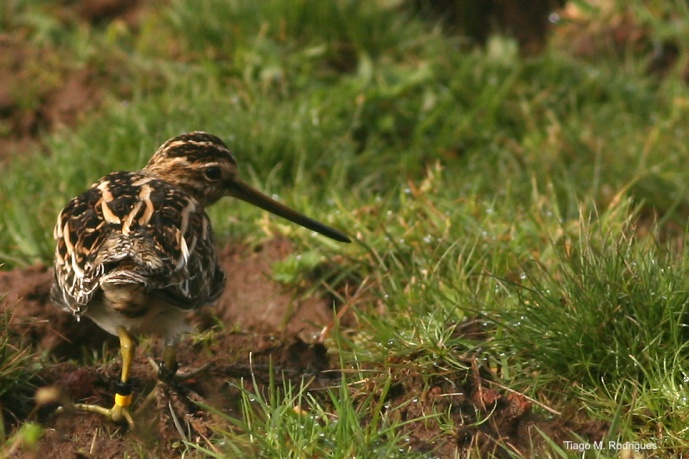Avian Ecology - AVE
The study of birds has had major impacts on ecology and evolutionary biology, starting with the outstanding example of Darwin’s finches, and it has contributed to raise awareness for conservation since at least the extinction of the passenger pigeon. The avian ecology group builds on this reach history, aiming to develop and apply strategies to manage and conserve wild avian populations through an integrative approach at the population and individual levels. Our vision is that each population is potentially unique and to manage and conserve it is crucial to characterise the individuals and understand their biology and ecology, while optimising monitoring protocols.
Our work has focused on game birds, with a particular interest on populations occurring in Azores. The work has received funding by the regional government, focusing on the Woodcock, Common quail, Common snipe, the Woodpigeon and other species. Besides its applied value, our work has addressed more fundamental questions related to the contrasts between insular and continental populations. While insular populations are resident those in continental Europe are migratory, and they differ in breeding phenology, reproductive success and survival. Furthermore, individuals differ in phenotypic traits (e.g. morphology, colour) and are genetically distinct, thereby requiring careful management.
To address these topics, we adopt an integrative approach, including ecological tools (counts, radio tagging, camera trapping, ecological modelling), phenotypic analyses (morphology, colouration, acoustic) and molecular tools (DNA sequencing, microsatellite genotyping, genomic analysis). For this we cooperate with other researchers from CIBIO and from international institutions.
Our group also aims to transfer the knowledge and skills acquired, in particular to agents involved on wild bird management. Therefore, we organize training sessions, give public talks and publish articles in non-scientific journals.
